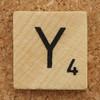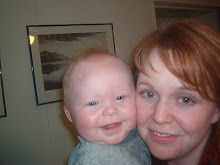I've been thinking a lot about background knowledge and schema this week. I love these concepts and I really try to use a lot of background knowledge in my lessons. The thing I've really been thinking about this week is the fact that there is such a discrepency in background knowledge among some of my students. I have many students who are well-read upon entering my class and they are ready for so much literature and so many challenging pieces. I have other students who don't read at all and reading for enjoyment is so foreign to them. Sometimes it seems hard to bridge the gap because there is such a difference in background knowledge and schema. I imagine that teachers in science, history, math, art, music and all other subjects run into this problem in their content area.
I think that the best way to effectuate learning when background knowledge is so different is to include a huge base of background information. In our classroom study of Shakespeare, we do a lot of background set up before we start to read Romeo and Juliet. We do basic research activities that discuss who Shakespeare was and why he was important in history. We study cultures and traditions of the time. I know that some of my students know about some of these things, I just hope that the knowledge base is broad enough that all students are learning something and have a schema for when we start to read.
Monday, September 28, 2009
Monday, September 21, 2009
Week 5--What is learning
What is learning? Well, with all of the study we’ve done over the past few weeks, I’m still trying to figure out my theory of learning. I do know this—people all learn differently. This is always demonstrated at the first of the school year. I give assignments to my students and I would really LOVE to tell them how to do each step, how to schedule their time and what not to do. I can’t really do that though, I have to let them learn and work at their own pace. It is like fingernails scratching against a chalkboard when I hear students talking about they have to “get started” on the paper that is due the next day. What happened to the two weeks I’ve given you to write the paper and the great nuggets of learning I’ve given you along the way? Ironically the students who wait until the last minute often produce some of the best material. So, the bottom line is that I can teach ideas, materials and skills, but I can’t dictate how the kids use those skills.
The best way to effectuate learning is to do what we are doing right now. Since so many people use skills and ideas in different ways, we need to understand many theories of learning. When we have so many theories in our teaching toolbox, we will be more likely to reach a greater number of students.
The best way to effectuate learning is to do what we are doing right now. Since so many people use skills and ideas in different ways, we need to understand many theories of learning. When we have so many theories in our teaching toolbox, we will be more likely to reach a greater number of students.
Monday, September 7, 2009
What is Learning Week 3
Our study of Functional Behavior Analysis this week really made sense to me and helped me add some new theories to my beliefs about learning. I really grasped on to the idea that we must find the cause of the breakdown in behavior or the breakdown in learning. Once we find the cause for this breakdown, we can try to remedy this problem and THEN reward students for the positive things that they do. This idea really spoke to me because I think that there are so many reasons learning can break down or behavior can break down. If we find the cause and fix it, deeper learning takes place. I really thought that Skinner's ideas last week were good, but I couldn't help feeling that it was like putting a Band Aid on the problem. If we reward students during one class for their learning, how likely are they to carry that over to the next class. On the other hand, if we find the very place that learning is breaking down, I think that correction is more likely to make a permenant impact on students.
Teachers can effectuate learning by getting to the root of the problem or the breakdown. Sometimes this is a quick process and can be taken care of in a few seconds. For example, every year I teach my 9th grade students about using strong verbs in writing. Every year I have a few students who don't know how to identify a verb. I take a few seconds and explain the definition of a verb and then these students are ready to go (until next year in 10th grade when they tell their teacher that they don't know what a verb is :). Sometimes getting to the root of the problem takes a longer process. Right now my department is working on making common assessments at each grade level. We are designing 4 common assessments to give to the students throughout the school year. We have teaching objectives for each quarter and throughout the year, we test the students to see if they have learned what we are trying to teach. This process is long, but I think it will be worth it in the end. So to make this long blog entry even longer, I think that teachers can effectuate learning by constantly evaluating students. This can be a formal common assessment or it may just be trying to fix the blank looks that we get from students during a lesson. I think that this type of learning will last a lot longer than exclusive reinforcement.
Teachers can effectuate learning by getting to the root of the problem or the breakdown. Sometimes this is a quick process and can be taken care of in a few seconds. For example, every year I teach my 9th grade students about using strong verbs in writing. Every year I have a few students who don't know how to identify a verb. I take a few seconds and explain the definition of a verb and then these students are ready to go (until next year in 10th grade when they tell their teacher that they don't know what a verb is :). Sometimes getting to the root of the problem takes a longer process. Right now my department is working on making common assessments at each grade level. We are designing 4 common assessments to give to the students throughout the school year. We have teaching objectives for each quarter and throughout the year, we test the students to see if they have learned what we are trying to teach. This process is long, but I think it will be worth it in the end. So to make this long blog entry even longer, I think that teachers can effectuate learning by constantly evaluating students. This can be a formal common assessment or it may just be trying to fix the blank looks that we get from students during a lesson. I think that this type of learning will last a lot longer than exclusive reinforcement.
Subscribe to:
Posts (Atom)






